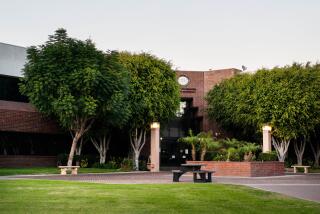Hospital Renamed to Show Chinese Tolerance
- Share via
PEKING — In an effort to show their tolerance of foreign influences, Chinese authorities have said that they will let a well-known Peking hospital and medical school change its name back to the one given it by the Rockefeller Foundation nearly 70 years ago.
The institution, known recently as Capital Hospital, will now be called Peking Union Medical College--the name originally given the green-tiled institution when it was built by John D. Rockefeller II in 1916. The hospital was set up to bring Western medical techniques to China.
China Daily, the government-controlled newspaper that disclosed the name change, said it “may . . . indicate that foreign titles no longer carry the stigma they once did in China.” It also quoted an official of the college as saying that he hopes the use of the old name will help the hospital carry on its “tradition of dedication and high standards.”
In China, institutions are sometimes renamed after political changes. The name Capital Hospital was itself the product of an ideological shift.
Anti-Imperialist Hospital
The hospital and medical school--where citizens of non-communist countries are generally sent for medical treatment--were called Peking Union Medical College until the beginning of China’s Cultural Revolution in 1966.
Then the name was changed to Anti-Imperialist Hospital. Some Red Guards had complained that in the early 20th Century, American doctors carried out experiments on Chinese patients.
In January, 1972, just as President Richard M. Nixon was preparing to visit China, the name was changed to Capital Hospital. (At about the same time, the name of the hospital where Soviet and Eastern European residents of Peking are generally treated was changed from Anti-Revisionist Hospital to Friendship Hospital.)
Hopes for Foreign Ties
Chen Yongsheng, dean of the hospital’s medical school, was quoted in the China Daily on Wednesday as saying that he hopes the new name will help broaden contacts with foreign medical institutions and will help to restore concern for patients among staff members.
Chen acknowledged that some doctors do not want to serve in outpatient wards. “The doctors don’t want to see patients who suffer from common diseases because they aren’t challenging,” he said.
The newspaper said Chen blamed this problem on the Cultural Revolution, when “rules and regulations were abolished.”
The Rockefeller Foundation built Peking Union on the site of a small school run by Christian missionary societies in the heart of Peking, not far from the Forbidden City. The Rockefeller Foundation operated the hospital and medical school through the New York-based China Medical Board, but the medical institutions were nationalized in 1951 after the Communist takeover.
The announcement of the renaming of the hospital, taken by many observers as an effort to reassure foreigners of China’s friendly intentions toward them, came less than three weeks after a soccer riot here in which some angry fans spit upon and threw bricks at the cars of foreigners.
Chinese officials announced Wednesday that seven of the 127 persons arrested during that riot have been formally charged with “disrupting the order of social administration.” They said all the others have been released from custody.
More to Read
Sign up for Essential California
The most important California stories and recommendations in your inbox every morning.
You may occasionally receive promotional content from the Los Angeles Times.










